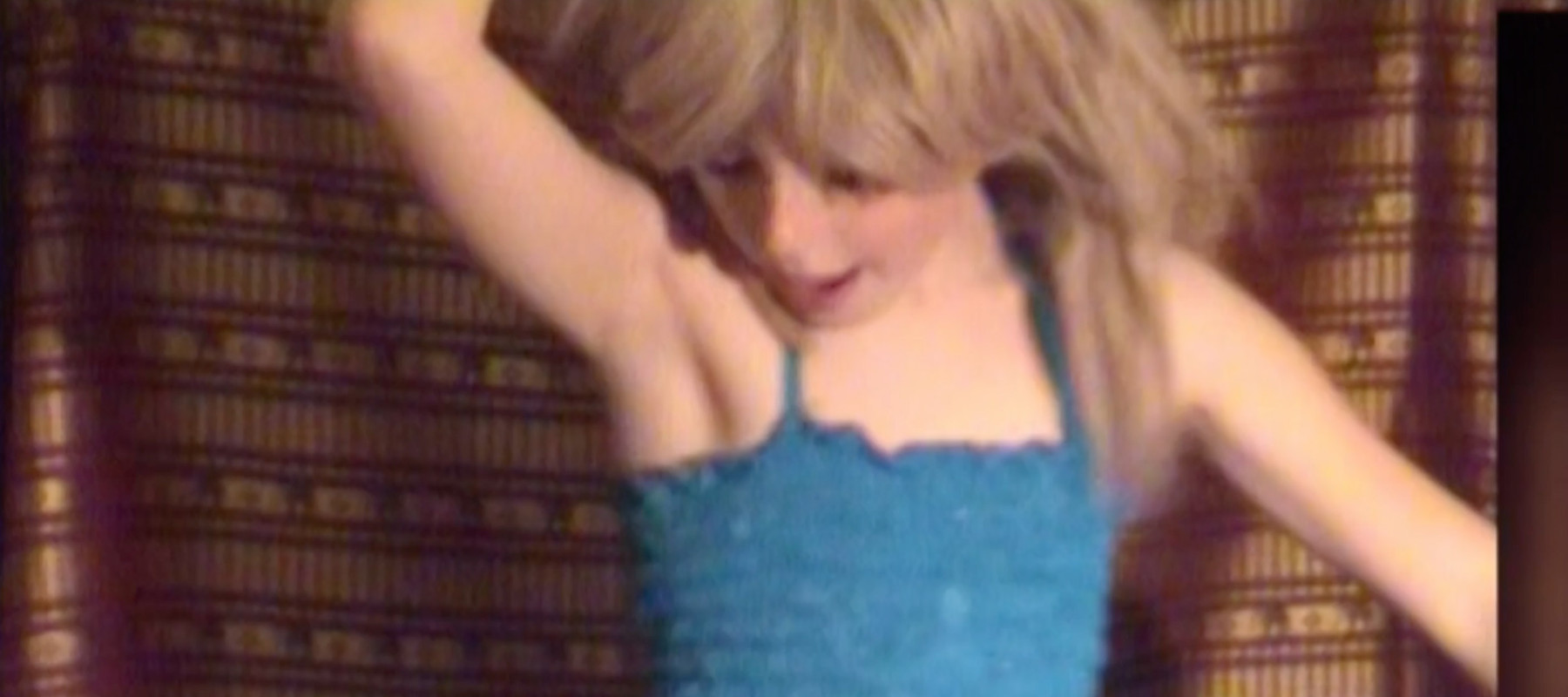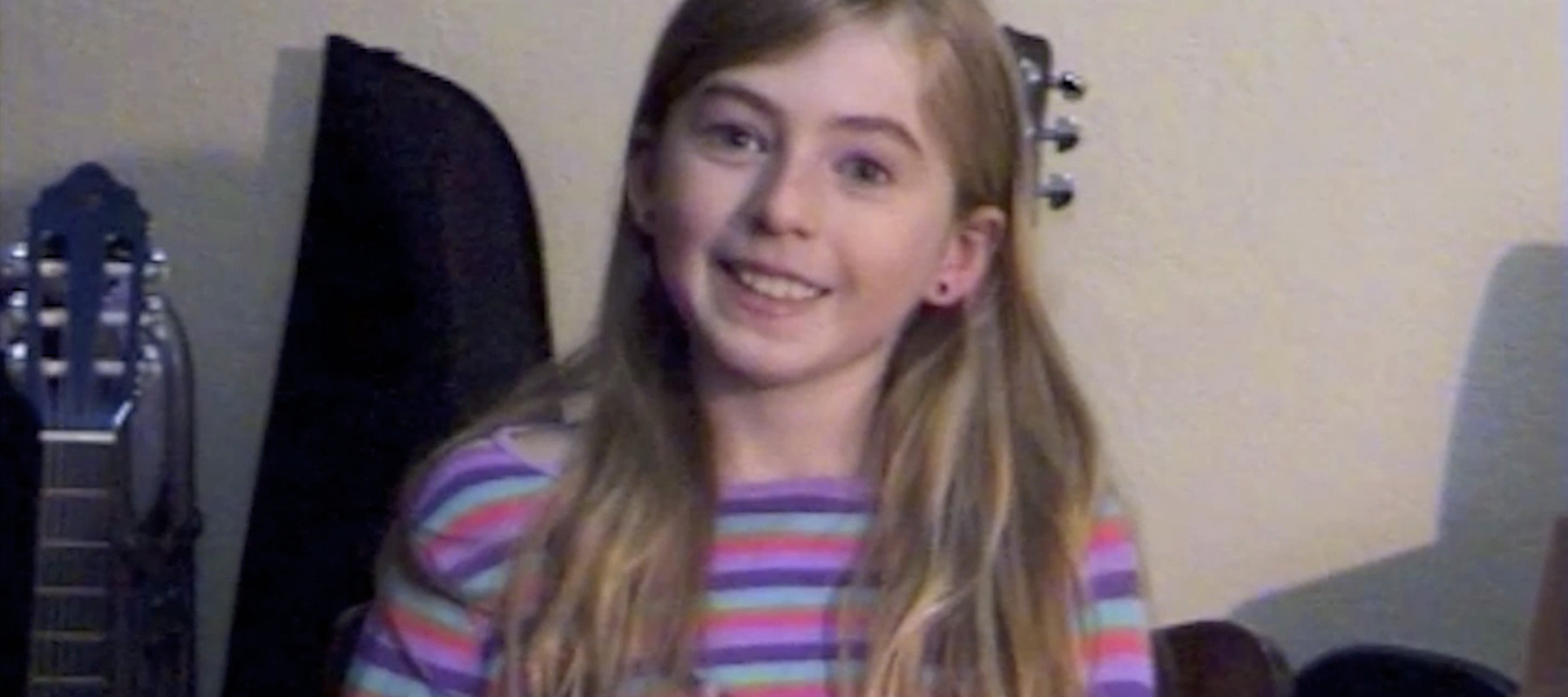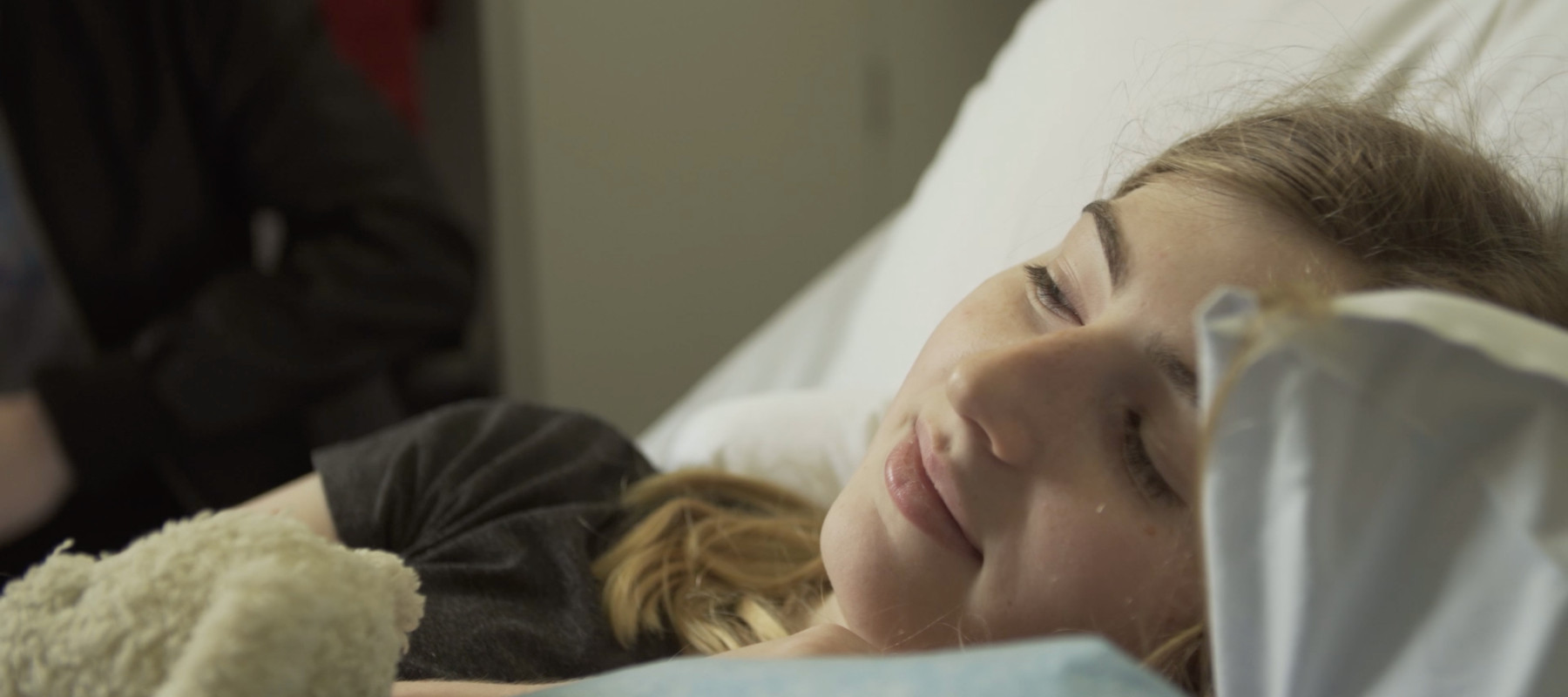In a classroom, it’s inevitable that each individual in the room will have a different relationship with the content of the story. We hope that these suggested discussion points help students to reflect on the key themes and messages in the film, share learnings, and deepen understanding.
Synopsis
The Dreamlife of Georgie Stone reveals the memories of Georgie Stone, an Australian transgender teen as she changes laws, affirms her gender, finds her voice and emerges into adulthood.
A note from Georgie
Growing up as a transgender kid in Australia, I never really knew anyone like me. For a long time, I thought I was the only person in the world who felt the way I did. Despite having the support of my family, I felt isolated and alone. I couldn’t see a future for myself. So much of this, I believe, is because of the lack of positive trans representation on screen and in the media.
For me, this film is about taking the power back. To have agency over my story, for the first time in my life, has been such an empowering experience. I am thankful and grateful to the older generations of trans people who paved the way to create a more accepting world where young people like myself can grow to become our true selves. Whilst this story is my own unique personal experience, our communities are rich with diversity and the trans experience has been a part of our First Nations peoples history for an incredibly long time. I want to extend my thanks and respect to Sistergirls and Brotherboys across these lands.
In Dreamlife, I want to portray my journey from a kid who felt so isolated and alone, to a young woman who is finally asserting control over her life, her body, her story. I want to show people the importance of a supportive family, and what that can do for a trans person. I want people to see the trans experience as not black-and-white, but nuanced and multi-faceted. It’s lonely and difficult, but also euphoric and beautiful too. There are times we want it to all go away, and times we are so proud to be ourselves we could explode! And most of all, I want other trans people to see that they have a future. You can be ambitious and dream big. Our trauma doesn’t define us, and it won’t last forever. We deserve to have a wonderful life.
I’m excited, and frankly a little terrified, to have the opportunity to tell my story honestly and openly. I don’t pretend to represent all trans experiences. Everyone’s journey is different. This is mine, and I hope you find something in it.
Step 1: Ensure you have access to the film on Netflix.
Step 2: Watch the film, taking note of the themes or scenes.
Step 3: View this guide, especially the FAQ section. Select prompts and key information that are a good match for your group. The film is best used as a learning tool for students aged 15 and older. We recommend checking this glossary of terms as a reference point to help inform the discussion you facilitate with your students.
Step 4: Engage in conversation with relevant staff at your school, including wellbeing or counselling staff, about your intended use of the documentary as a learning tool. For some young people, the film may evoke complex personal questions related to gender identity that are not appropriate to address in the classroom, but which need follow up or support outside the classroom. Prepare for students with a list of relevant support people in the school, as well as a list of qualified local support organisations or counselling services with experience in the issues specific to trans and gender diverse young people.
Step 5: Reflect on how you will facilitate safe and inclusive conversation in your classroom, before, during and after watching the film.
Key Vocabulary
Agency - Having the power to make decisions about one’s own life or situation
Identity - the individual characteristics that make up a specific person or thing, and make them different from others.
Trans or Transgender - A term for someone whose gender identity is not congruent with their sex assigned at birth.
Gender diverse - A term to describe people who do not conform to their society or culture’s expectations for males and females. Being transgender is one way of being gender diverse, but not all gender diverse people are transgender.
Non-binary - A term to describe someone who doesn’t identity exclusively as male or female.
Gender affirmation - Gender affirmation is an umbrella term for the range of actions and possibilities involved in living, surviving, and thriving as our authentic gendered selves. What gender affirmation looks like for every individual trans person is unique and based on what is personally affirming, what feels safe to do, and what is accessible and available.
Key Themes
Identity
Agency
Memories and dreaming
Before you watch
Explain to students that you are going to watch a short documentary, The Dream Life of Georgie Stone in which Georgie Stone, an Australian transgender teen, shares reflections about personal and sometimes complex issues relating to identity, family, safety at school, and being transgender, including discussions about her body as she goes through puberty and seeks gender affirming health care. Consider sharing the Note from Georgie.
Invite students to suggest expectations for keeping discussion safe and respectful throughout the session. If they have trouble getting started, some examples are:
Option to pass.
No put-downs.
Don’t tell personal stories about yourself or others, or ask personal questions. Hint: keep it in the third person (“Some people might …”; “I wonder if some people …”)
Disagree with ideas, not people. (“I disagree with your idea because …” “I have a different perspective, which is …”)
Review Key Vocabulary
Ask students: What stories do you hear in the media about trans, gender diverse, and non-binary young people? Who tells these stories? Who is their intended audience?
After you watch
Opening Questions - Get the discussion going
What line, scene or moment was moving, surprising, or relatable for you? Why?
How did seeing the film make you feel?
What were you wondering as you watched the film? Were there any questions you wished you could ask Georgie or her family?
Diving deeper - Identity
The documentary includes footage of Georgie from a very young age. What do you notice about how the film edits and sequences this footage? How does the film use the footage of Georgie to explore the themes of memory and identity?
At nine years old, Georgie says: “I’ve always known who I am. I’ve always been a girl.” At 19, she explains: “How I see my experience is that I have always been female, even when I was two and half and I had short hair and people said ‘he.’ I still see myself then as female, but I was assigned male at birth.” The film shows Georgie’s strong sense of identity from a young age. What parts of your own identity have remained strong and consistent over the years?
When Georgie’s dad asks, “How do you feel about the medical treatment that you want to have?” Georgie replies: “I feel good about that, because I won’t grow into a boy … I’ll be myself.” What does identity have to do with “being yourself”? What do you think the film is saying about “being yourself?” How can adults - including doctors, teachers, and families - support young people to be themselves? For ideas, see FAQ Questions 7.
Georgie says, “When people find out you are trans, they often make assumptions about what your life has been like.” What assumptions are made about you, in your own life? How does this make you feel? What strategies can you use to avoid making inaccurate assumptions about others?
When asked how he feels about having a sister, Georgie’s brother Harry says: “When we’re playing super-heroes… there’s now a girl superhero and a boy superhero… It’s more fun having a girl around than just two boys.” What can adults learn from children about acceptance and identity? For ideas, see FAQ Question 11.
Diving deeper - Agency
While they are in the car, Beck, Georgie’s mum, says: “It’s just you. It’s just for you.” What do you think Beck is trying to convey to Georgie? Why? For ideas, see FAQ Question 3.
Georgie says, “I can’t get female hormones without the permission of the court. They give the orders and it’s not in the power of the doctors, parents, or me. I don’t have the right - legally - to make that decision.” Gaining agency and the power to make decisions for yourself is an important theme of the film. How is this disempowerment shown to affect Georgie and her family? Why do you think it’s important that young people have agency and power over decisions about their own lives? What do you think young trans, non-binary and gender diverse people can gain from having agency over their own bodies and access to affirming medical care? For ideas, see FAQ Questions 4, 9 & 12.
Georgie says, “To have a complete stranger having to make a decision about my body was really distressing, and I felt really powerless.” What does this make you think or feel? How can adults help young people to feel that they have the power to make decisions about their identity and bodies? For ideas, see FAQ Questions 4, 7
Diving deeper - Memories and dreams
How do you think Georgie felt when she achieved one of her dreams of being the first transgender actor to play a transgender character on Australian TV show, Neighbours? What might the significance be of realising this dream?
What messages are there in the documentary about memories and dreams, and the relationship between them? For ideas, see FAQ Question 1.
What do you think the film title, The Dream Life of Georgie Stone, means? For ideas, see FAQ Question 1.
Closing questions
These questions are designed to move students towards taking action. Consider sharing the film’s Key Messages before inviting answers to the Closing Questions.
What’s something you learned from watching The Dreamlife of Georgie Stone? Is there anything you learned that you would like to share with others?
Who else do you wish would watch the film, and why?
How was this story similar or different to other stories in the media you have heard about trans, gender diverse, and non-binary young people? What can we do when we see news stories or opinions that are factually incorrect, misleading and harmful? How do you think this impacts the trans, gender diverse and non-binary community?
If you were talking to a friend or family member, or writing a post on social media, how would you describe the key points of the documentary?
How can you be a good ally to trans, non-binary and gender diverse young people? For ideas, see FAQ Question 20
Thinking about your own communities, how can you contribute to the change needed to ensure that all trans, non-binary and gender diverse people can have agency, feel affirmed in their identities, and live their “dream lives”? See Take Action for ideas.
Go to www.dreamlifefilm/takeaction to support Georgie and her the family’s change goals
See The Dreamlife Project, an interactive multimedia project for young trans, non-binary, and gender diverse people
Add social media handles
Donate to Transcend Australia, or a local organisation advocating for or supporting trans, non-binary and gender diverse young people
Share with friends and encourage others to watch it.
You can read more answers to FAQ from Georgie, Beck, Dr Michelle Telfer and the film team on our FAQs page.
"We know who we are” - we must listen to and lead with the voices of trans, gender diverse and non-binary young people
Trans, gender diverse and non-binary youth need agency over their own bodies, narratives and lives
Trans, gender diverse and non-binary youth need to be safe from prejudice and discrimination
This film is not about becoming a girl or woman, it’s about Georgie becoming herself
Trans, gender diverse and non-binary youth need support from their families and communities to thrive
Georgie’s story does not represent all transgender experiences. This film is her story, and only one of many diverse stories about transgender people



